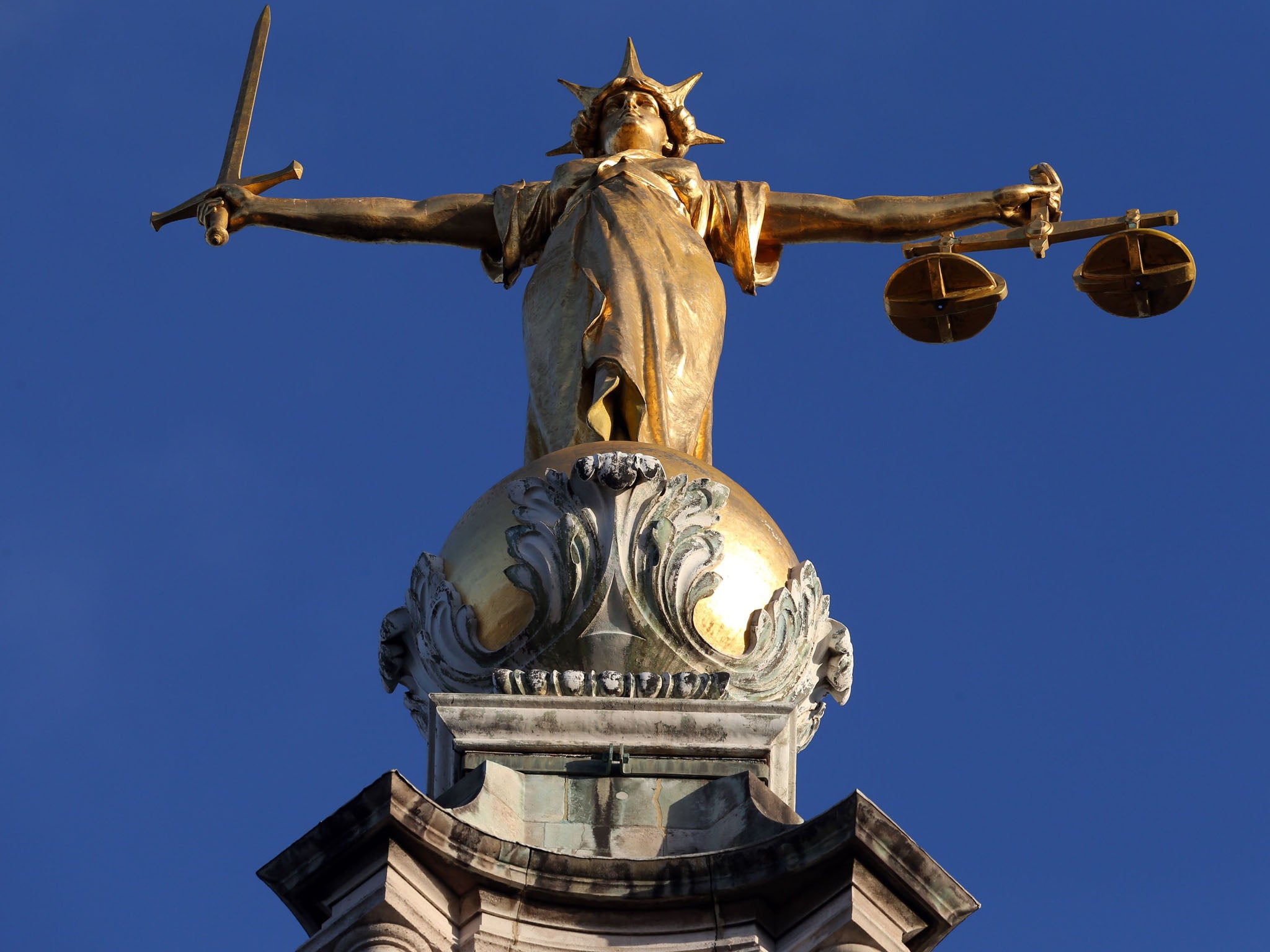Justice system ‘will break down’ and criminals go unpunished unless next government spends hundreds of millions, union warns
Exclusive: Crown Prosecution Service hundreds of lawyers short and 'will not cope' with planned recruitment of 20,000 police officers

The justice system “will break down” and allow crimes to go unpunished if the next government does not provide hundreds of millions of pounds in investment, it has been warned.
A union said there are not enough crown prosecutors to deal with current cases, and that the situation will worsen if the 20,000 new police officers promised by Boris Johnson solve more crimes.
“It isn’t just about bobbies on the beat, it’s about the entire system,” FDA national officer Steven Littlewood told The Independent.
“If they do recruit all these extra police, who is going to prosecute the criminals they catch?
“The court system is crumbling, the Crown Prosecution Service (CPS) is under-resourced. It needs a huge cash injection.”
The number of criminal trials in England and Wales has dropped to a record low, with almost 67,000 fewer held in 2018 than in 2008.
Official figures also show prosecutions plummeting for all types of crime, to just 7.4 per cent of the offences reported to police – a fall of 41,700 in a year.
Only 1.4 per cent of reported rapes, 3.3 of sex offences, 5.4 per cent of thefts and 7.8 per cent of violent crimes are now prosecuted.
And a recent inspection by the policing watchdog found that the performance of forces across the country was still worsening, seeing officers unable to respond to some crimes as investigations slow down.
Mr Littlewood said the dire statistics showed the “whole system is falling apart”.
He warned that without significant new funding, “the consequence will be the system breaking down and not being able to cope”.
“Justice would not be done,” he added. “Public faith will be lost.”
Mr Littlewood said the CPS, whose workers are represented by the FDA, was “hundreds” of lawyers short and that growing caseloads for remaining staff were driving mental health problems and long-term sickness.
The CPS is currently attempting to recruit 390 crown prosecutors that it hopes will start by June next year “to meet current and future business priorities”, as well as 40 specialist casework lawyers and additional posts.
But Mr Littlewood said the pay offered by the CPS was significantly lower than the salaries lawyers can earn from private firms.
“Every time they recruit someone, someone goes out the door – they’re treading water at best,” he added. “Why would people go to the CPS if they can earn a lot more somewhere else?”
In its own “manifesto for justice”, the FDA has proposed solutions including increased funding for the CPS, the examination of seized digital devices, legal aid and competitive pay to recruit and retain criminal lawyers.
The government announced that it would increase CPS funding by £85m in August, but Mr Littlewood said the boost was a “drop in the ocean compared to the cuts since 2010”.
While Mr Johnson has positioned crime and justice as a central pillar of his tenure as prime minister, and the Conservatives’ election manifesto, campaigners are concerned that commitments “will not be backed up” with the funding needed to fulfil them.
“Is it just headline-grabbing or is there any substance to [Mr Johnson’s policies]?” Mr Littlewood asked.
“Justice isn’t a high-profile issue – if anything other than Brexit gets a look in it’s the NHS or other services. The CPS isn’t high on the list of public sympathy at the best of times but they do a really important job.”
The Labour Party has supported the FDA’s manifesto, as well as the Law Society, Bar Council and anonymous campaigner the Secret Barrister.
Shami Chakrabarti, the shadow attorney general, said: “There is no greater contribution to society than public service in support of public services. Access to justice has been neglected for far too long and it’s the most vulnerable who suffer most.”
It came after parliament’s Public Accounts Committee warned of the knock-on effect of the recruitment of 20,000 police officers.
“Given the operational and financial pressure that court, prison and probation services are already under, it is far from certain the Ministry of Justice will have the capacity and capability to cope with a significant rise in demand,” said a report published last week.
“The government has a track record of changing one element of a system without fully recognising the consequences for the rest of the system, or across other government departments.”
The committee found that the Ministry of Justice had been unable to calculate the impact of police recruitment and moves to lengthen jail sentences on the overcrowded and violent prison estate.
MPs said recent increases to the ministry’s budget were not enough to meet demand, and that snap general elections and the September prorogation of parliament meant that new laws needed for modernisation programmes had not been passed.
A total of 127 courts have been closed since 2015 and 77 more are set for the axe, amid calls for urgent funding to maintain ageing buildings.
The number of days on which the remaining courts sit have been cut by almost 15 per cent in a year, leaving many sitting empty despite a backlog of cases waiting to be heard.
Expenditure on legal aid has fallen by 15 per cent in a year in crown courts and 7 per cent in magistrates’ courts, sparking warnings over potential miscarriages of justice against those who cannot afford to pay for representation.
